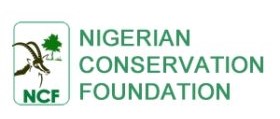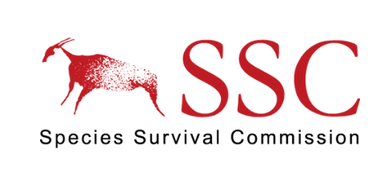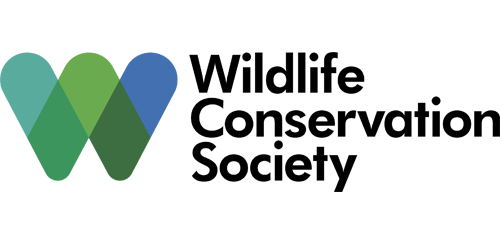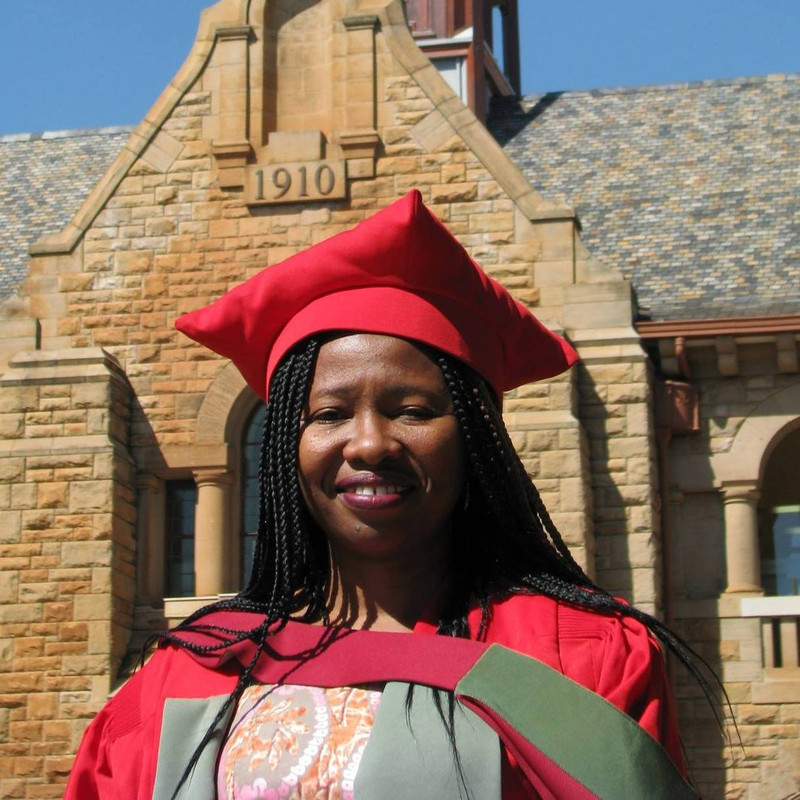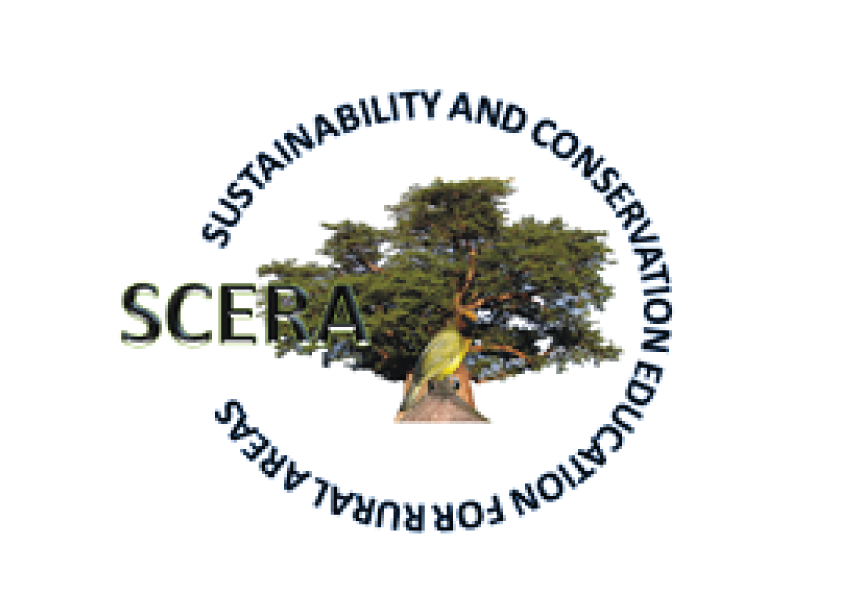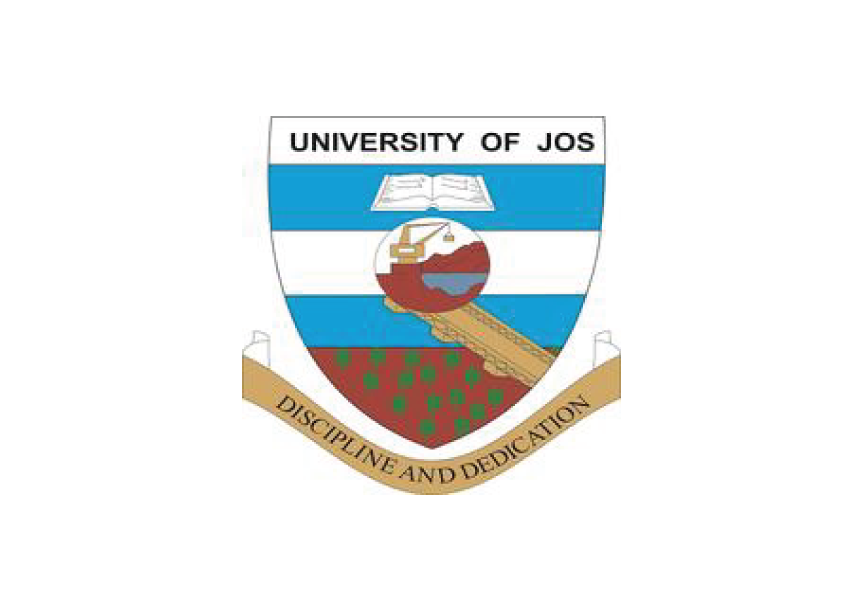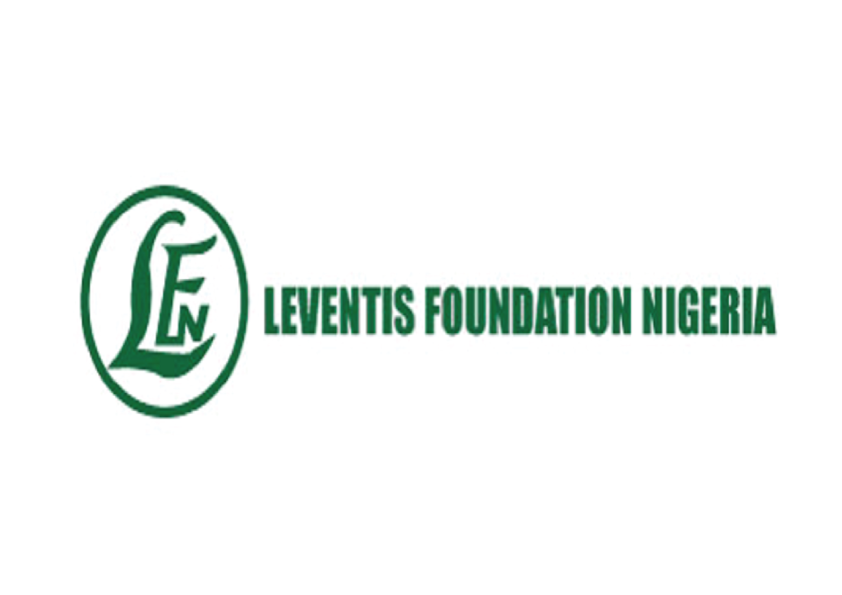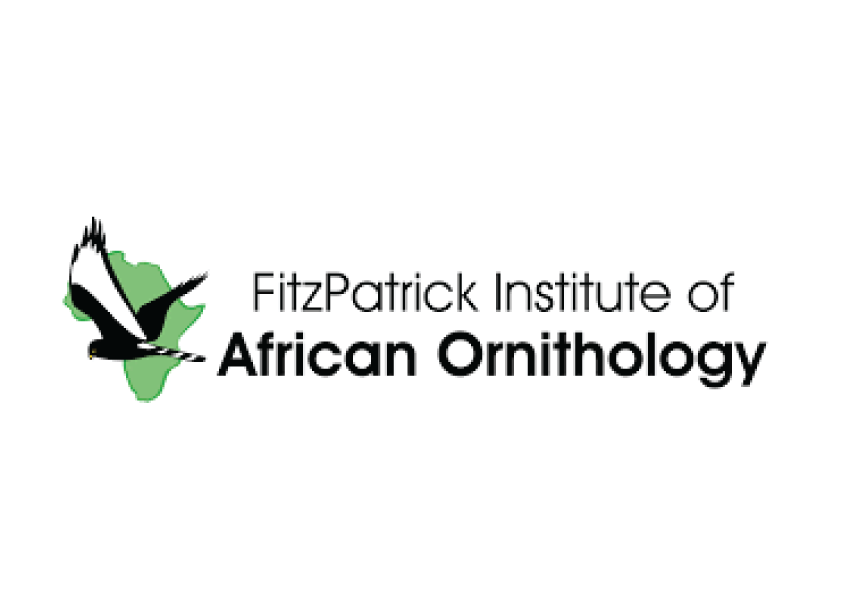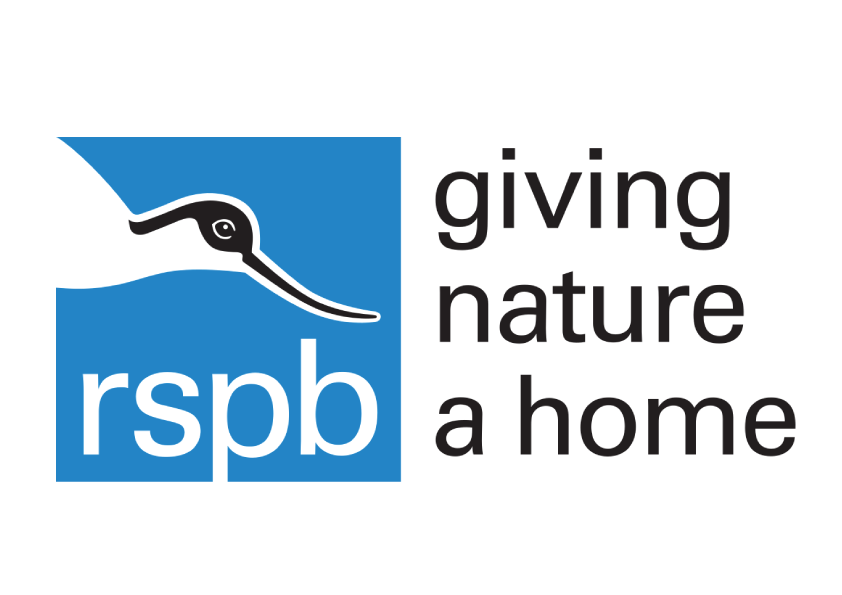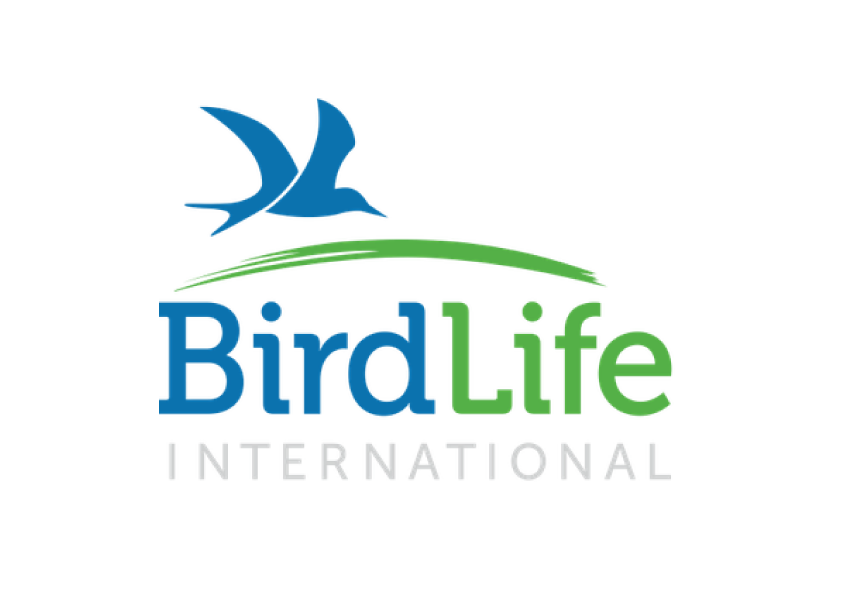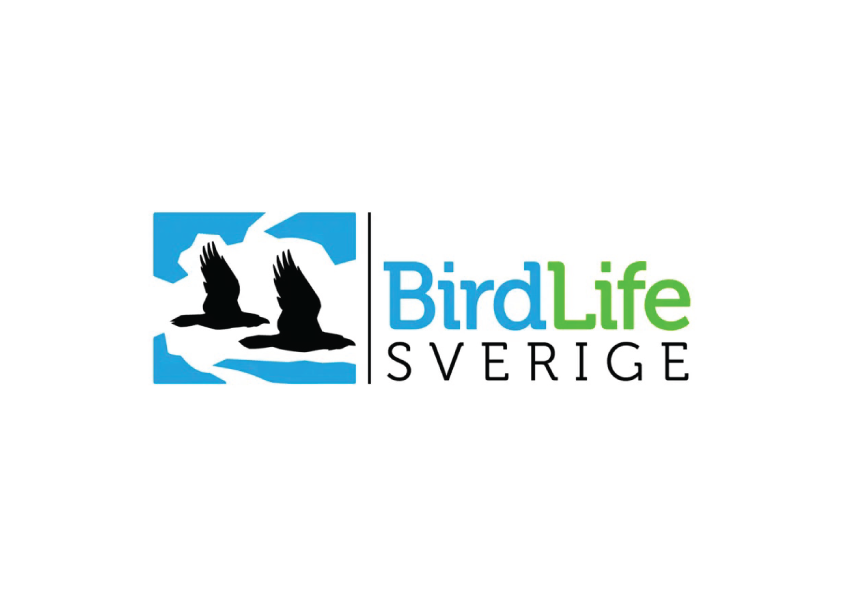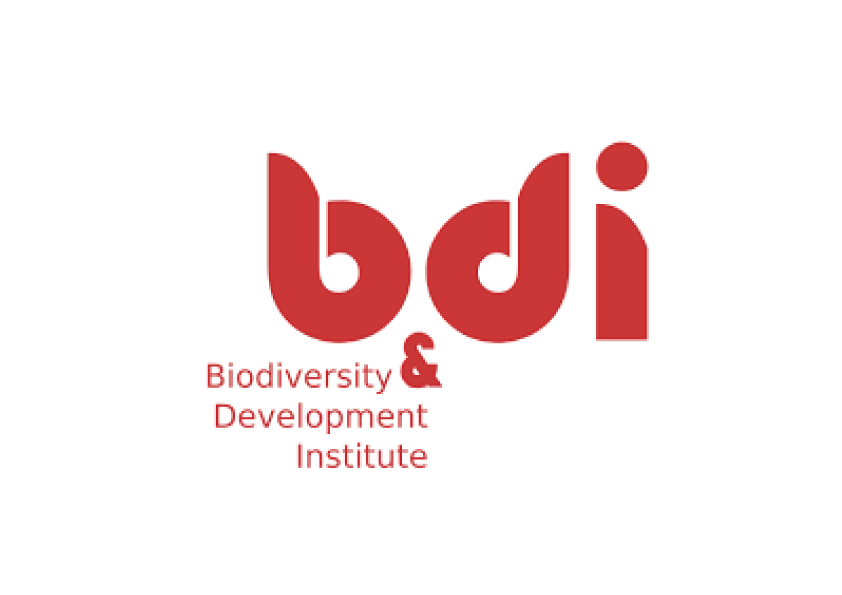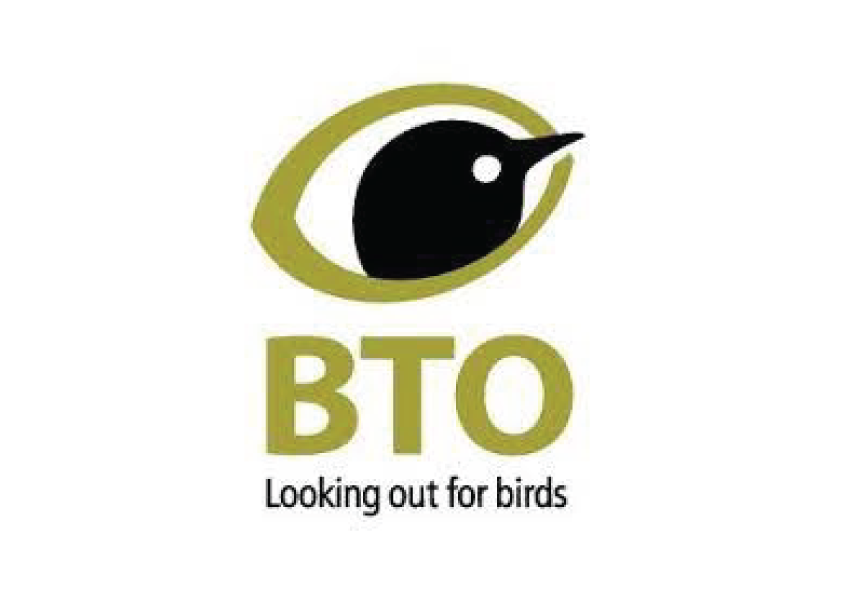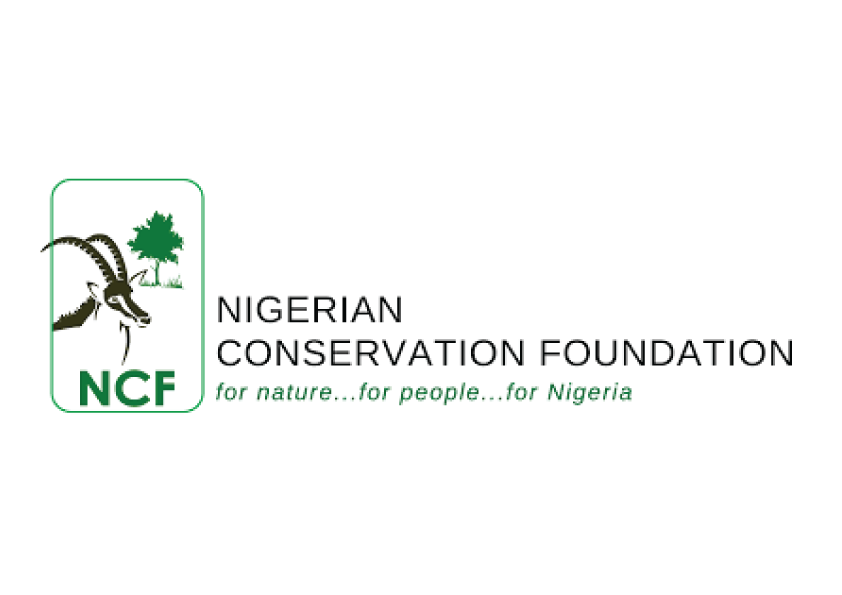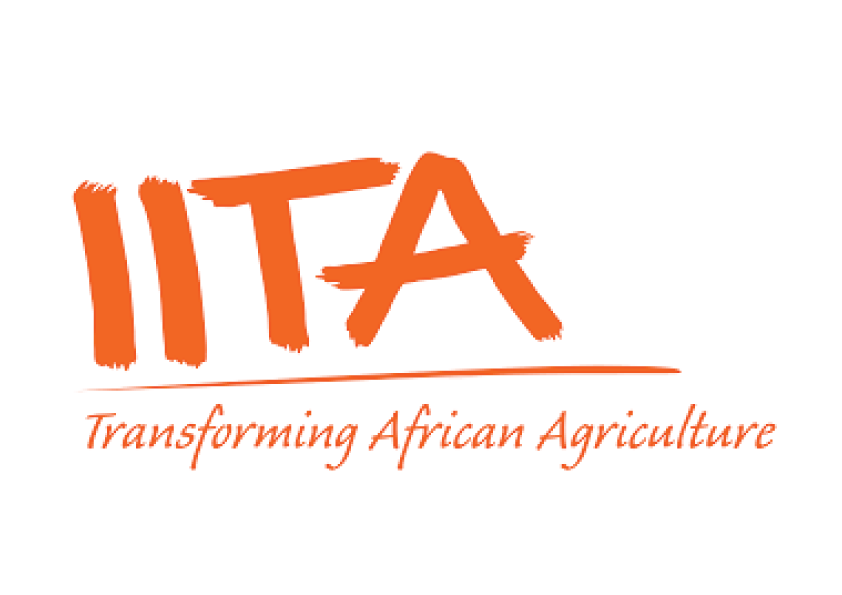23 years of Capacity Building
For Ornithology and Conservation Science in West Africa

APLORI Graduates Destinations
25%
Have completed PhDs
24%
At different stages of their PhDs
APLORI graduate destinations - October, 2023
Since 2004 when the first set of eight students completed their programme, APLORI has trained 146 young West Africans at the Masters level in Ornithology and Conservation Biology. Over 25% of these graduates have gone ahead to complete PhDs, while another ~24% are currently studying for PhDs. Most remarkably, ~90% of APLORI graduates remain active contributors to biodiversity conservation efforts eithers as researchers, lecturers, teachers, government officials and Conservation NGO founders and workers. See below:
Not just in Nigeria, but across West Africa
Although APLORI’s capacity building work started in Nigeria, this has extended across the West African sub-region. Since 2012 when the first international student from Liberia was admitted to the programme, other young West Africans have participated in the APLORI M.Sc. Conservation Biology Programme. Through regional partnerships with the University of Cape Coast in Ghana; FFI – Liberia and other partners in Sierra Leone; ten Ghanaian, four Liberian and a Sierra Leonean student have all participated in the APLORI M.Sc. programme.
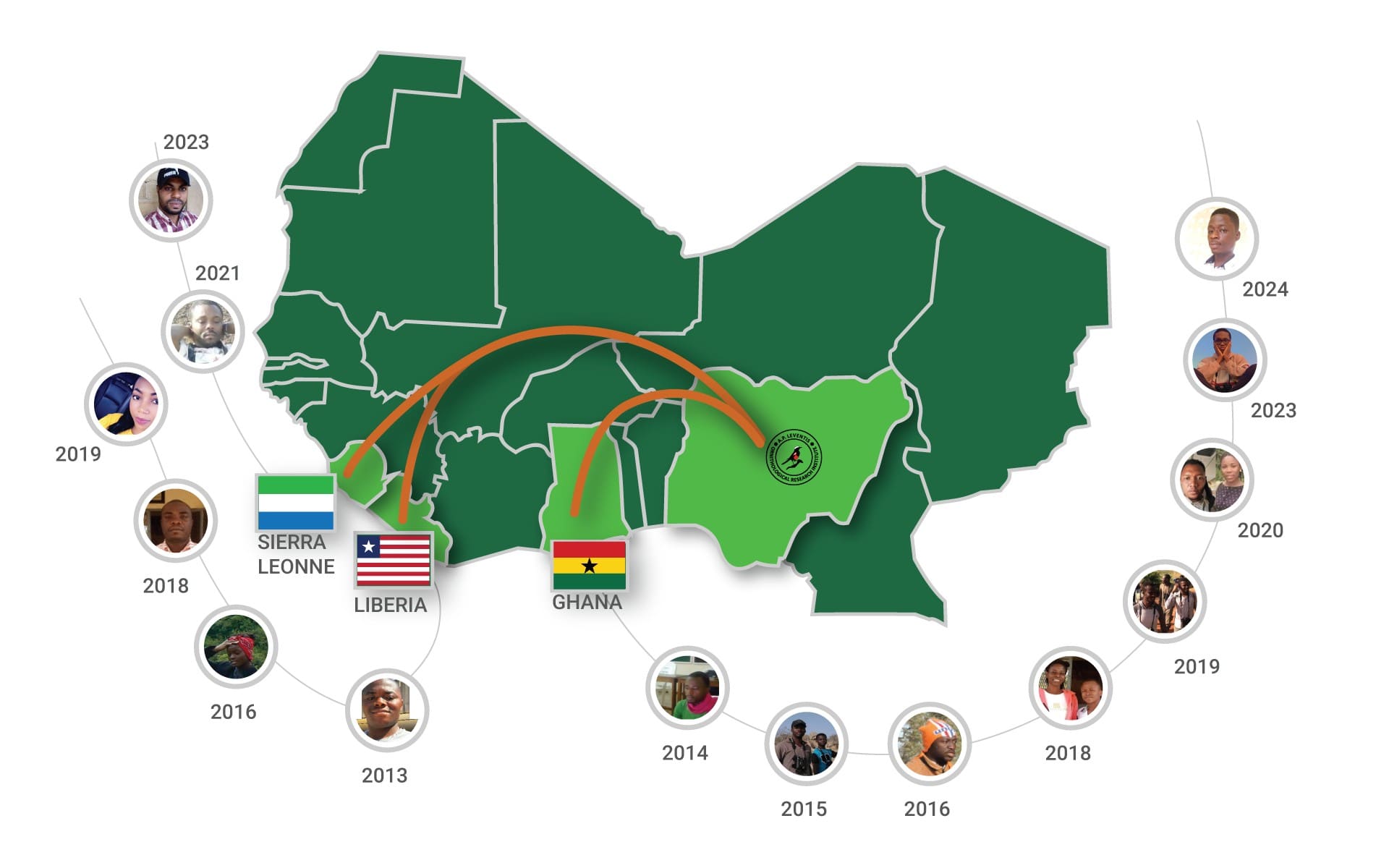
APLORI graduates in key roles & driver’s seat in leading conservation Institutions across the region
After 23 years of quality capacity building work, some of our graduates are now in leadership positions where they are driving efforts for the conservation of biodiversity at frontline biodiversity conservation organizations including at Birdlife International, Fauna & Flora International, WCS, NCF, Leventis Foundation. Quite fitting also is the fact that APLORI is now being led by one of her graduates.
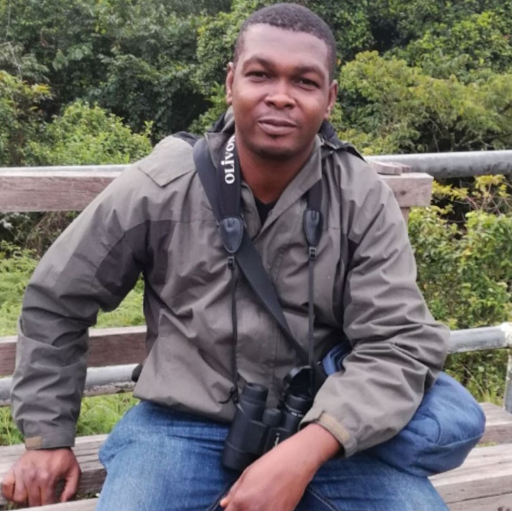
ADAMS CHASKDA Ph.D.
APLORI set 2005,
Director, A. P. Leventis Ornithological Research Institute, Jos, Nigeria

ADEMOLA AJAGBE
APLORI set 2004,
Regional managing Director, The Nature Conservancy
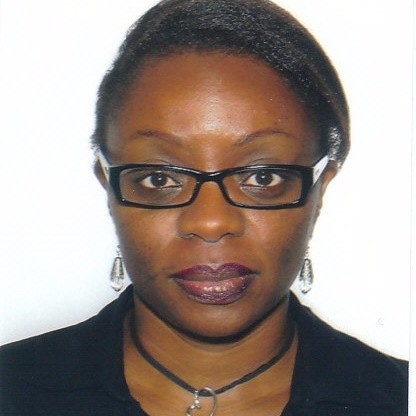
MARY MOLOKWU-ODOZI Ph.D.
APLORI set 2004,
Country Manager Fauna & Flora International, Liberia
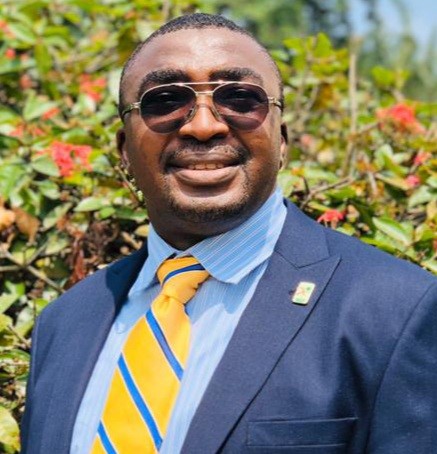
JOSEPH ONOJA Ph.D.
APLORI set 2008,
Director General, Nigerian Conservation Foundation, Lagos, Nigeria
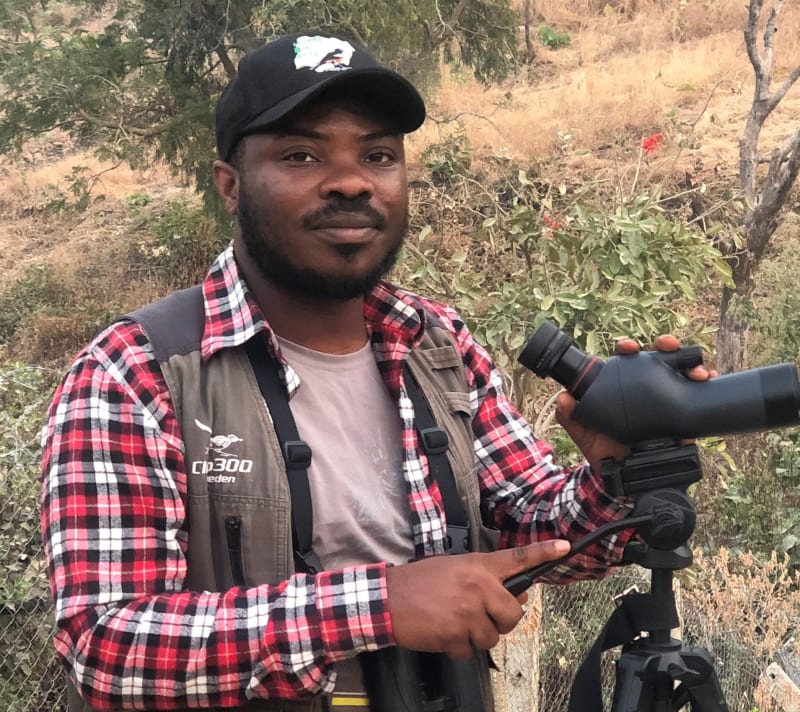
SAMUEL T. IVANDE PhD.
APLORI set 2009,
Conservation Coordinator (Birds) Global Center for Species Survival

HOPE USIETA Ph.D.
APLORI set 2008,
Executive Director Leventis Foundation Nigeria

STELLA EGBE Ph.D.
APLORI set 2011,
Species Conservation Programme Manager, Nigerian Conservation Foundation, Lagos, Nigeria
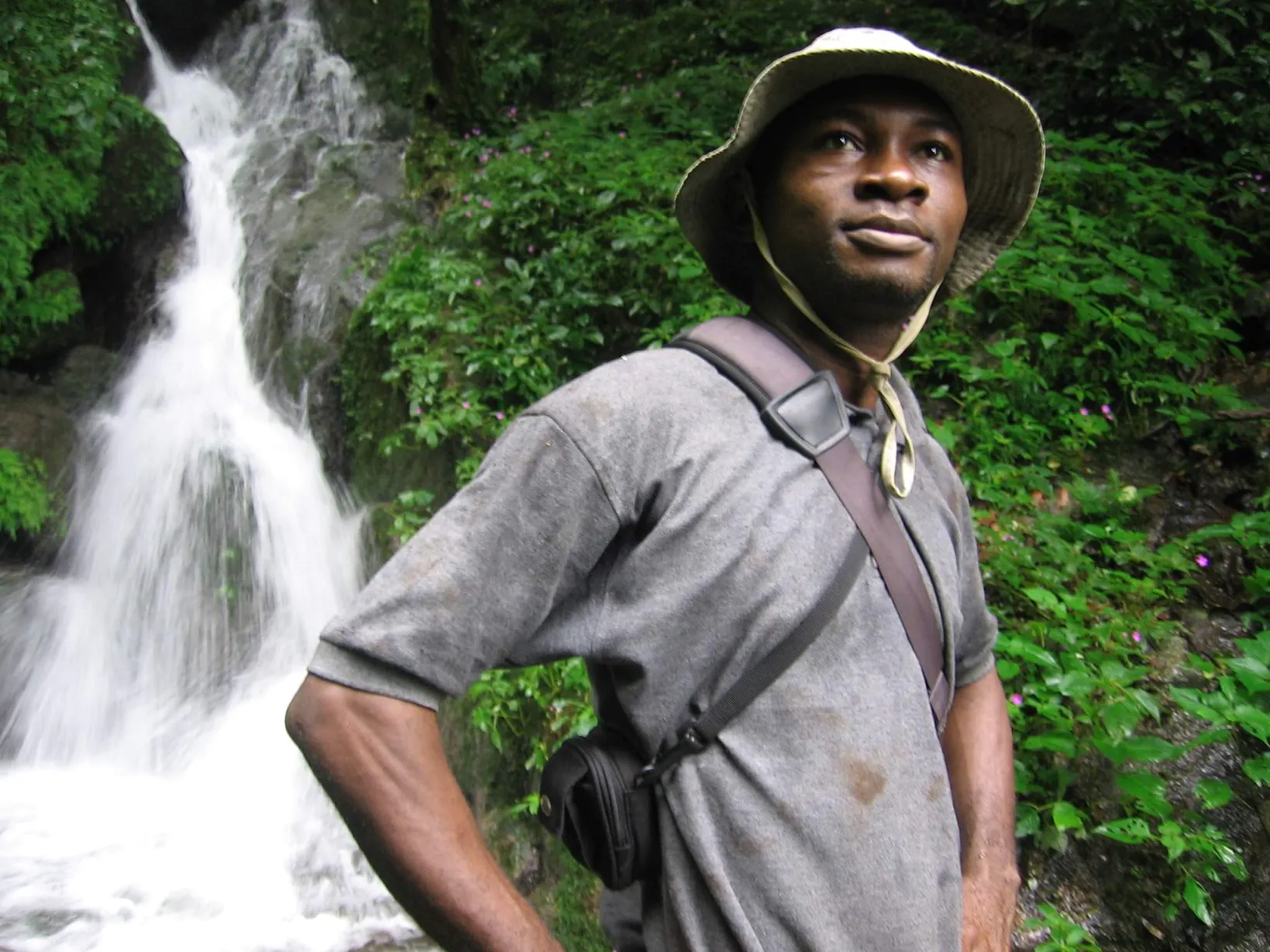
IMONG INAOYOM Ph.D.
APLORI set 2007,
Cross River Landscape Director, Gorilla Project, WCS Nigeria

ADEWALE AWOYEMI
APLORI set 2015,
Manager, IITA Forest Centre
Founders of conservation NGOs
Several other APLORI graduates have founded and are leading biodiversity conservation efforts at NGOs, both locally and internationally.
An overview of APLORI research output (2002 – 2021)
Besides our capacity building work, APLORI also conducts and facilitates research in tropical ornithology and ecology. Through APLORI’s work, capacity of researchers in West Africa to ask questions of the environment and investigate ecological processes, especially in tropical habitats in Africa has increased. From an average of three published articles from APLORI per annum during the first five years of her establishment, researchers from APLORI alone are now contributing an annual average of 15 peer-reviewed scientific articles per annum to improve our understanding of ecological processes in tropical environments in Africa.
22 published articles by APLORI researchers & affiliates in 2021 alone - our most productive year thus far
APLORI Publication (2002-2021) 5 year averages
APLORI Publish papers per annum
Renewed drive for continued capacity development via PhDs in the University of Jos
As APLORI trains young Africans, many of them go on to gain further training. Many also return to contribute to the capacity building work in the region. Over 25% of APLORI graduates are now in Universities in Nigeria and some of them are now training other PhDs. In 2021 alone, seven (7) more APLORI graduates have newly registered and started their PhDs in the Department of Zoology, University of Jos, and one at the University of Cyprus. Those at the University of Jos are all supervised by former APLORI students.

NANCHIN WINIFRED KAZEH (University of Jos)
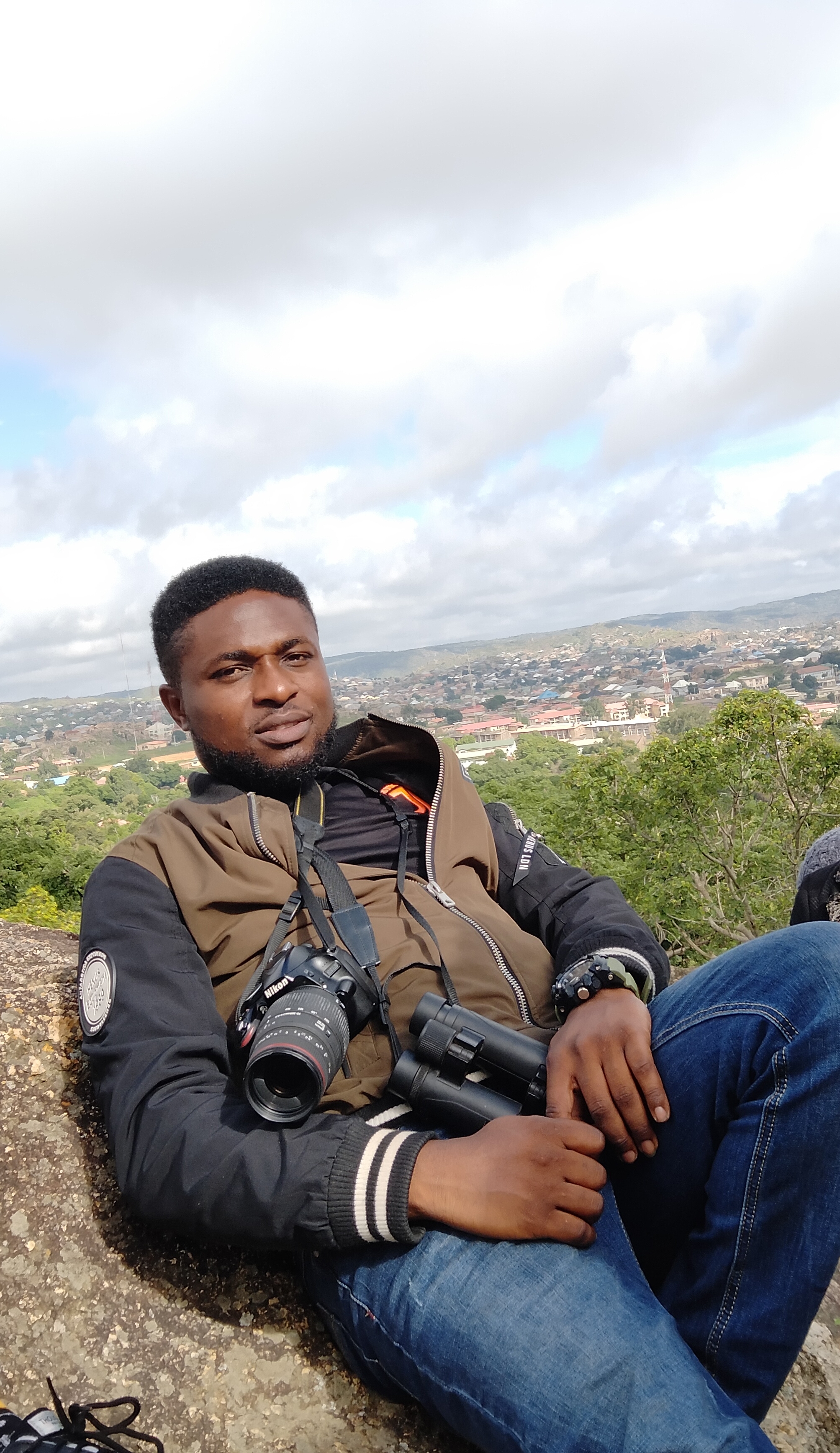
LONGJI BAKO (University of Cyprus)
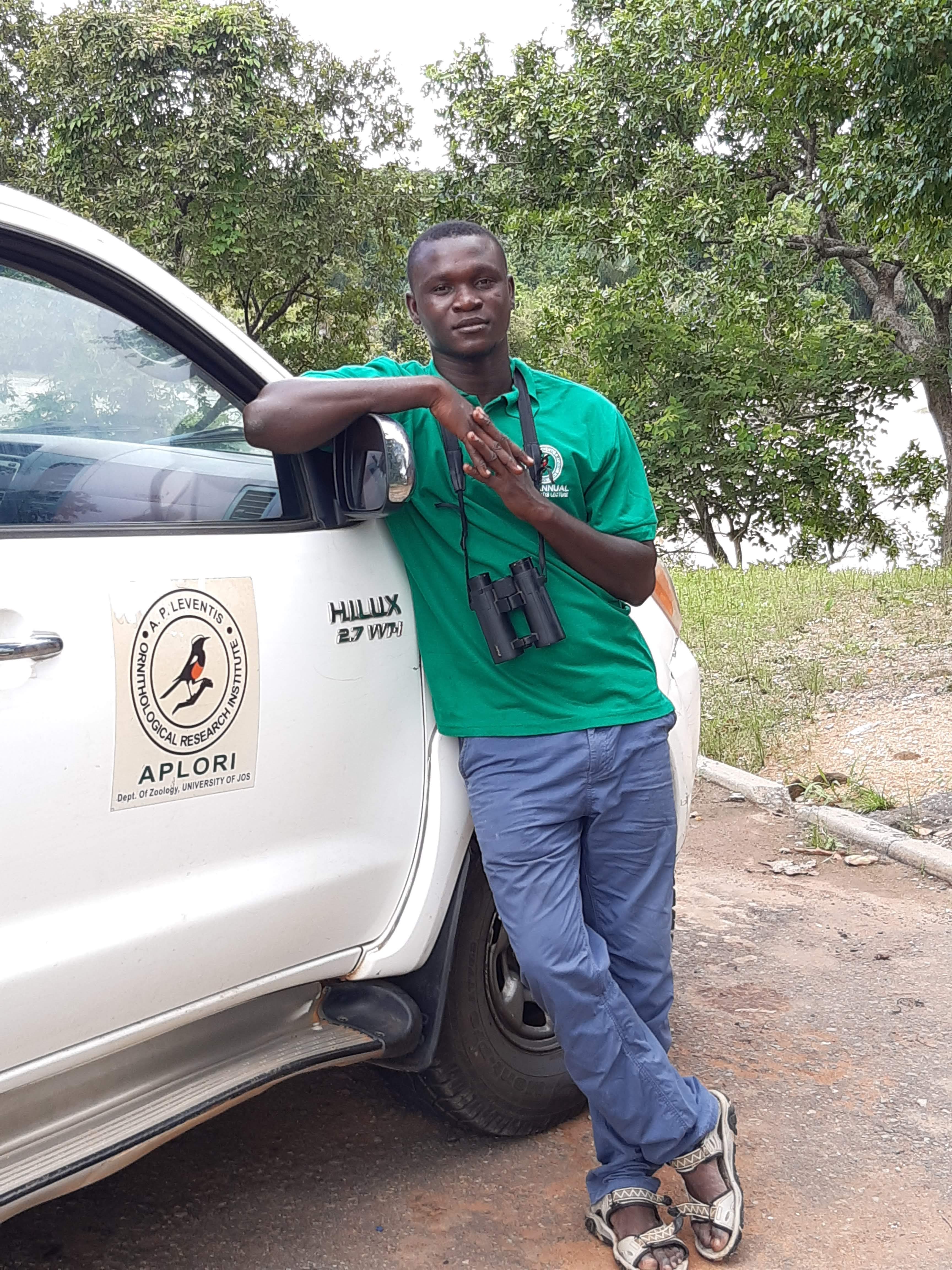
JOSIAH IBRAHIM (University of Jos)
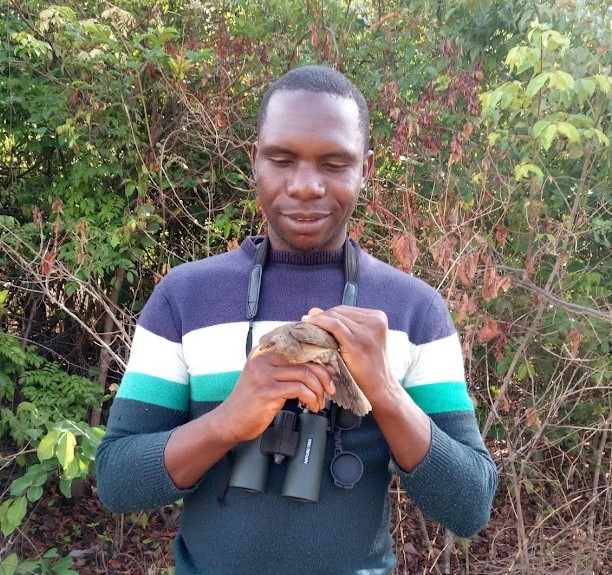
PANSHAK SOLOMON (University of Jos)
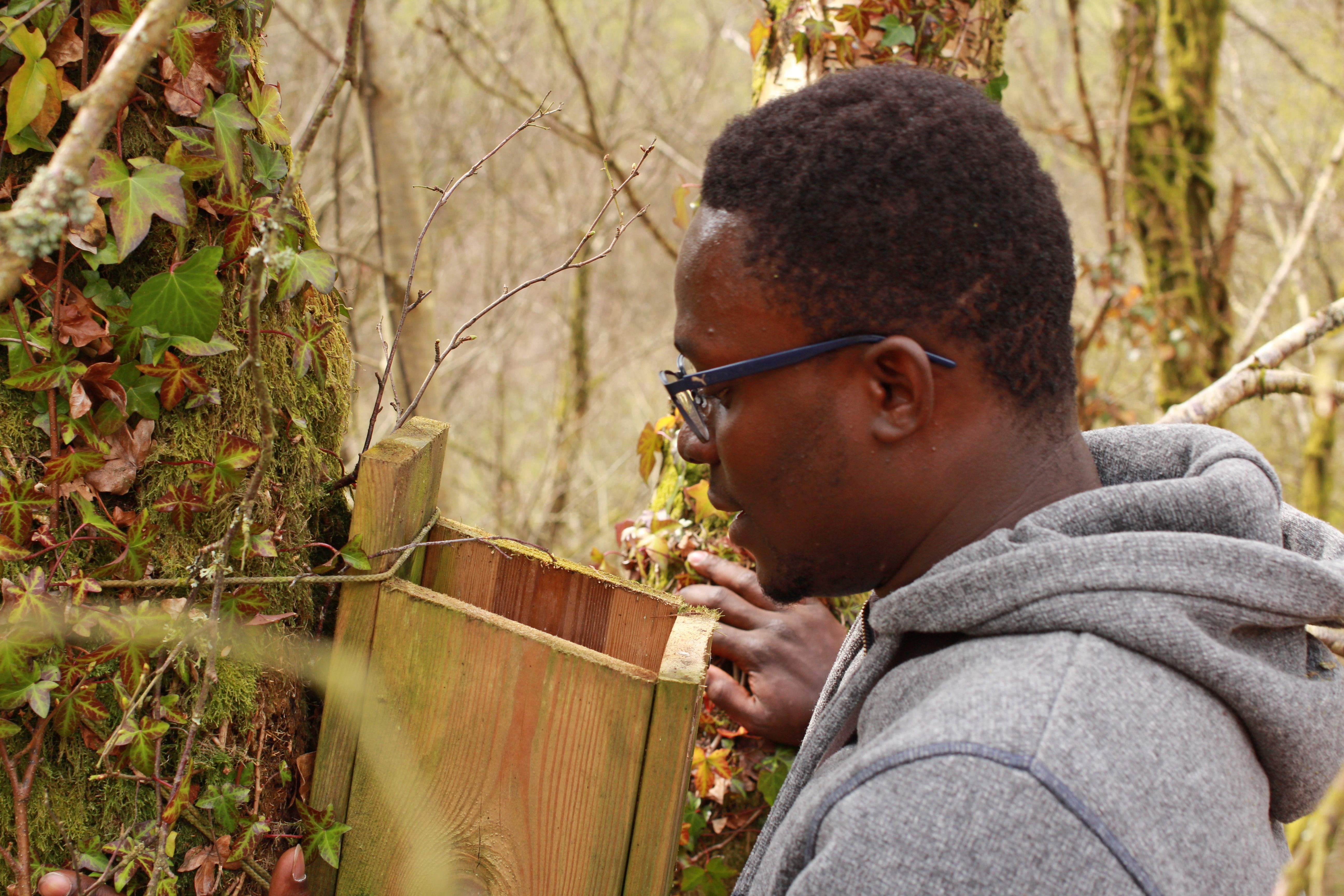
ISRAEL ADEDEJI BOLADE (University of Jos)
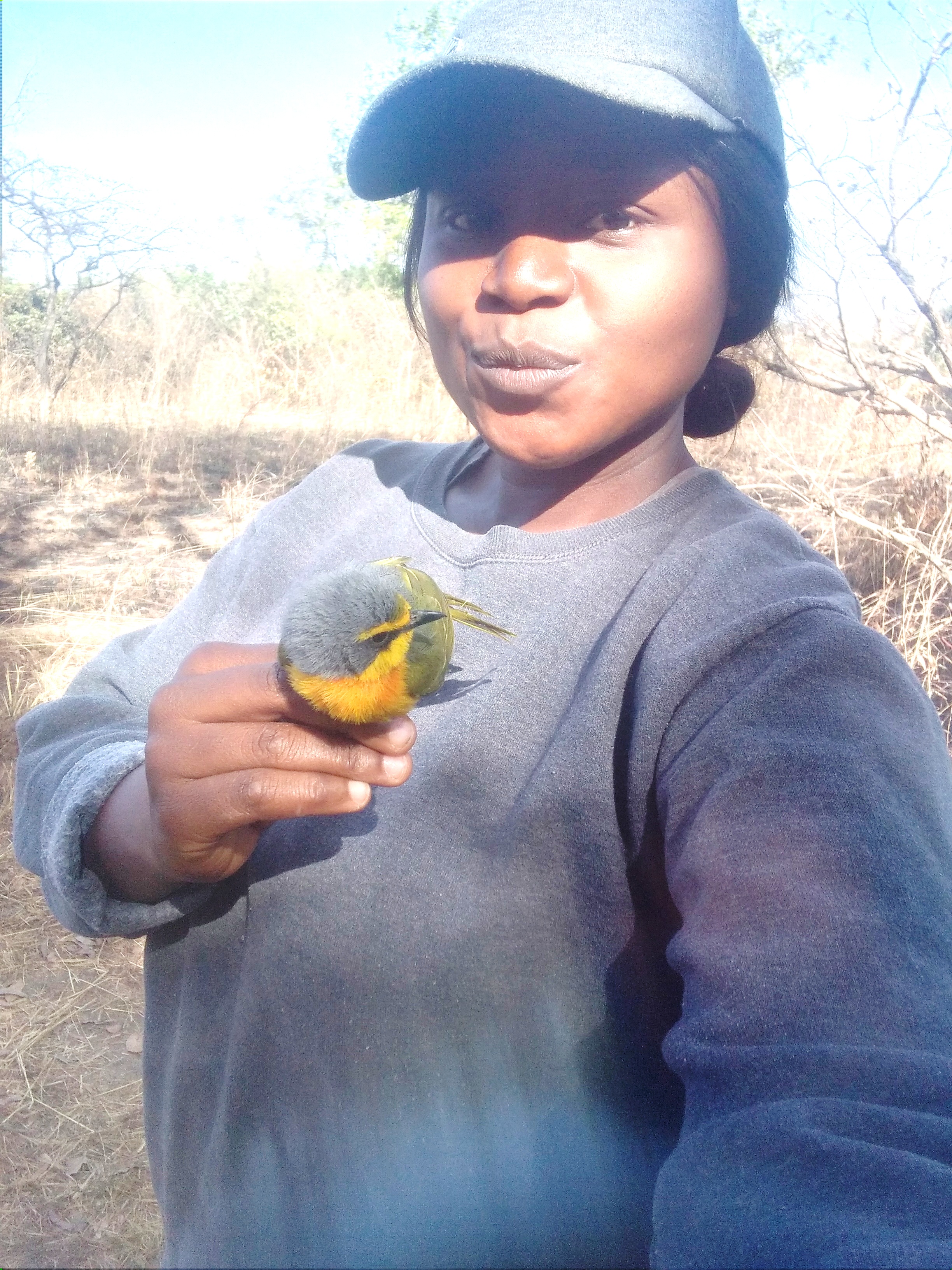
ANAP GRACE ISHAKU (University of Jos)
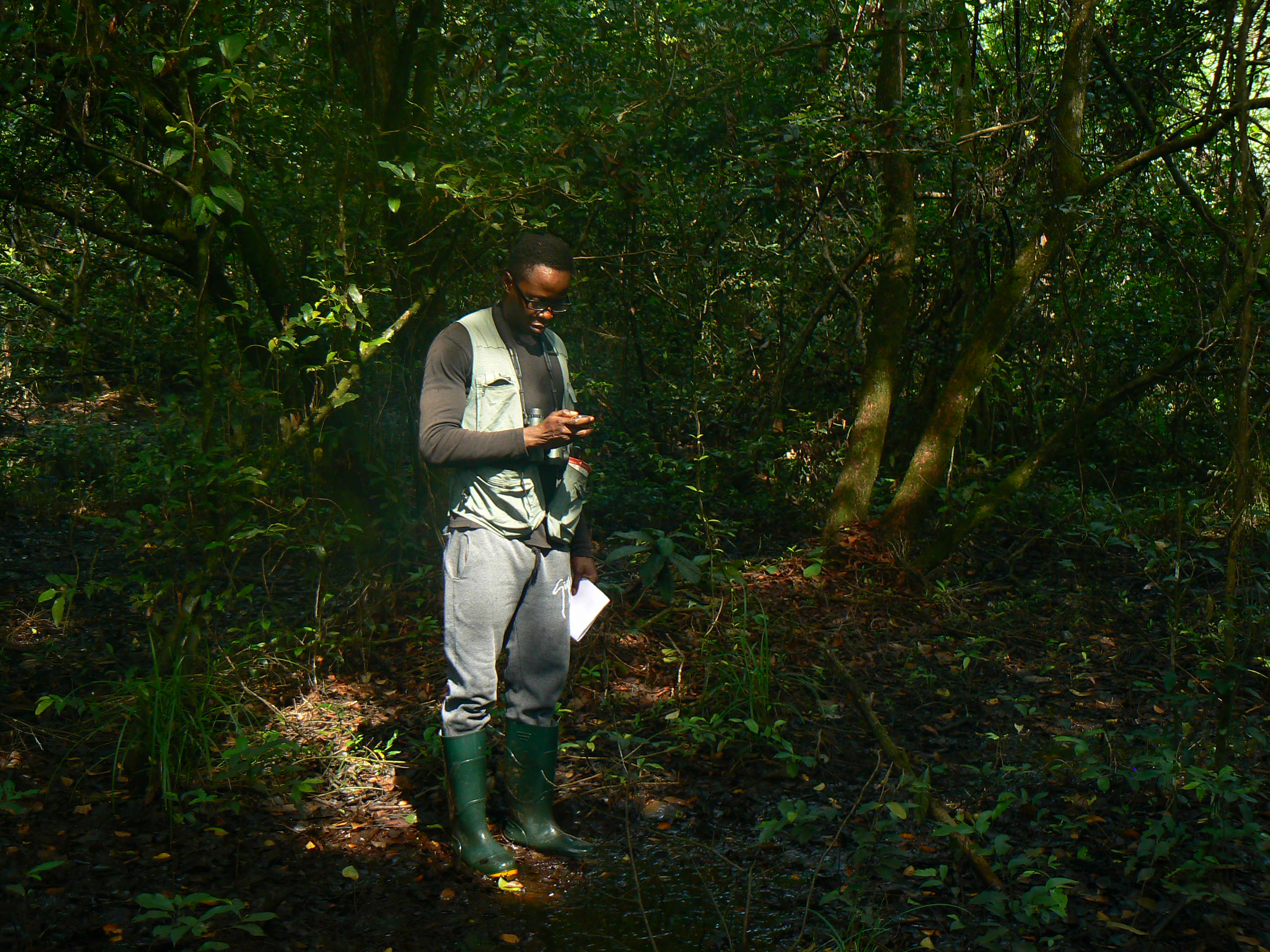
INIUNAM INIUNAM (University of Jos)
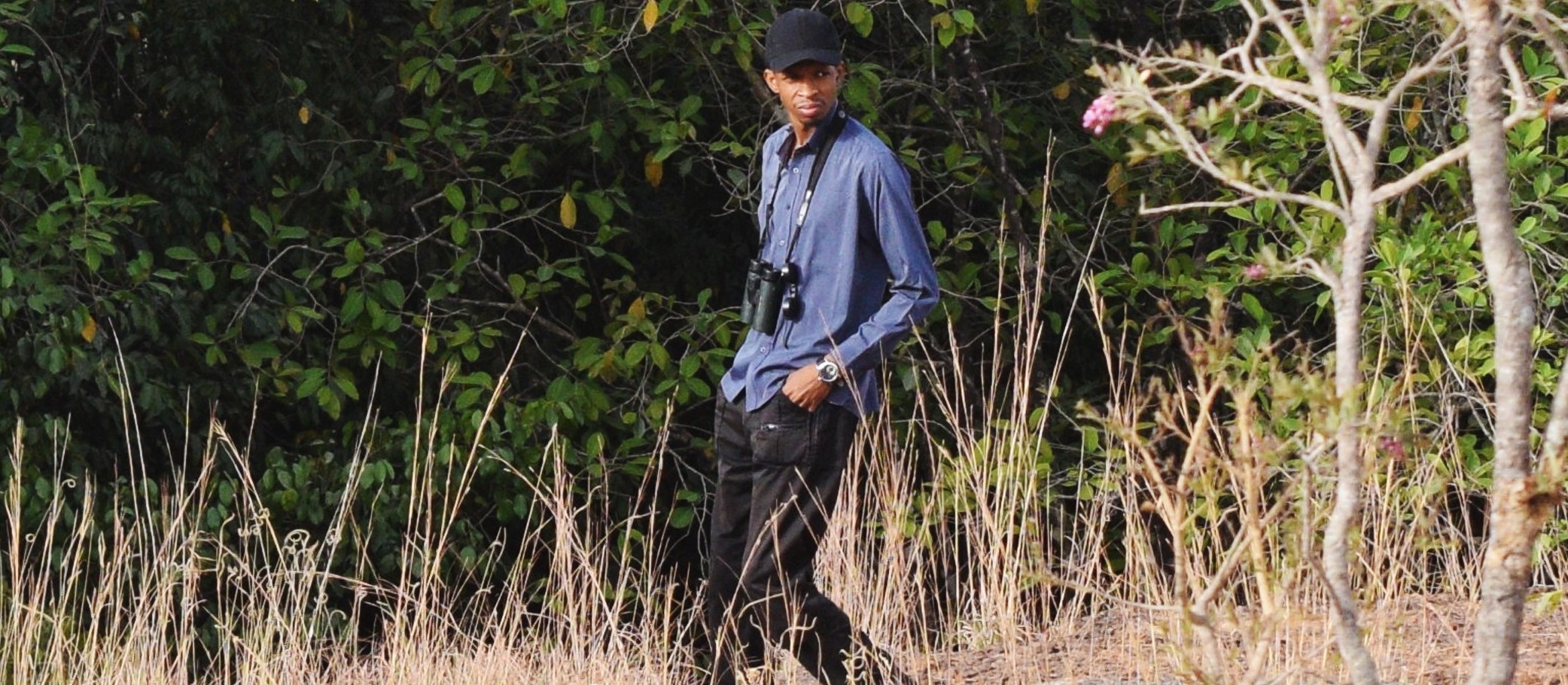
BELLO ADAMU DANMALLAM (University of Jos)
Facilitating fundamental biological research in West Africa
After two decades of facilitating research for both local and international researchers interested in tropical ecology, clear research themes are beginning to emerge at APLORI. One research theme is focused on studies that investigate bird migration, population dynamics and monitoring. Another is a Macroecology and Biogeography research theme that includes studies that investigate habitat use by birds and how changes in habitat cover and structure affects the distribution of birds. More recently, there has been increased interest in the use of molecular techniques to increase understanding of population genetics and disease ecology leading to the setting up of an APLORI Molecular Ecology lab and a researcher cluster around this theme. There is also increasing interest and capacity to improve understanding of the human dimensions of biodiversity conservation and hence an Ethnoecology research cluster is beginning to develop. With advances in technology and after two decades of active research, APLORI, through a Global Biodiversity Information Facility GBIF grant is setting up a Biodiversity Information Development Unit that is working to develop tools and systems for efficient biodiversity data gathering, management and utilization.
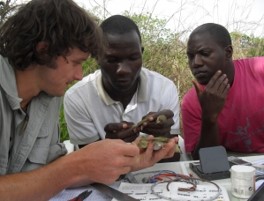
Bird migration/Avian Population dynamics & Monitoring
"Seasonality & moult in the Northern red Bishop"
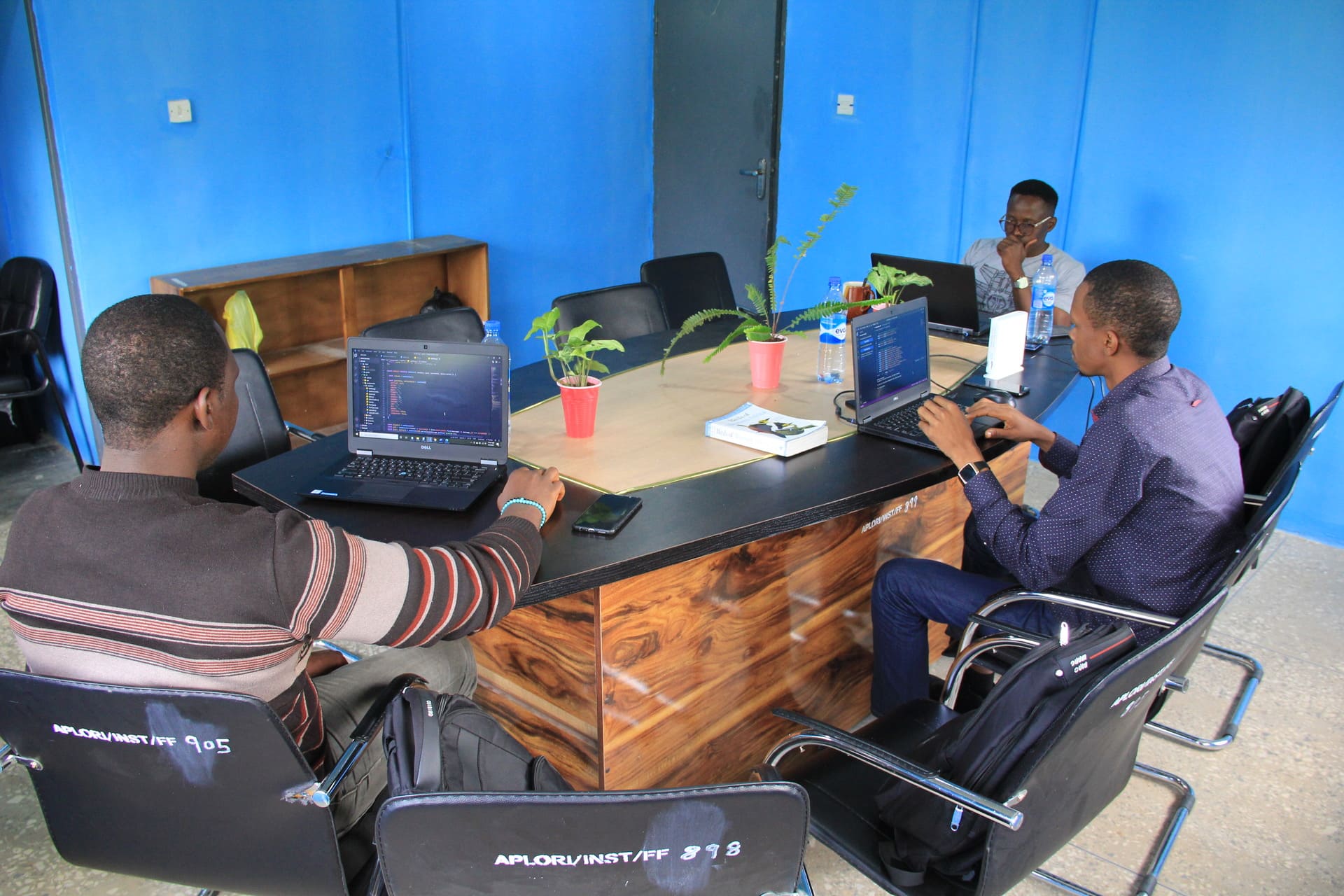
Biodiversity Information Development
“Integrated information systems management - (website, APLORI community data, biodiversity data & equipment database)”
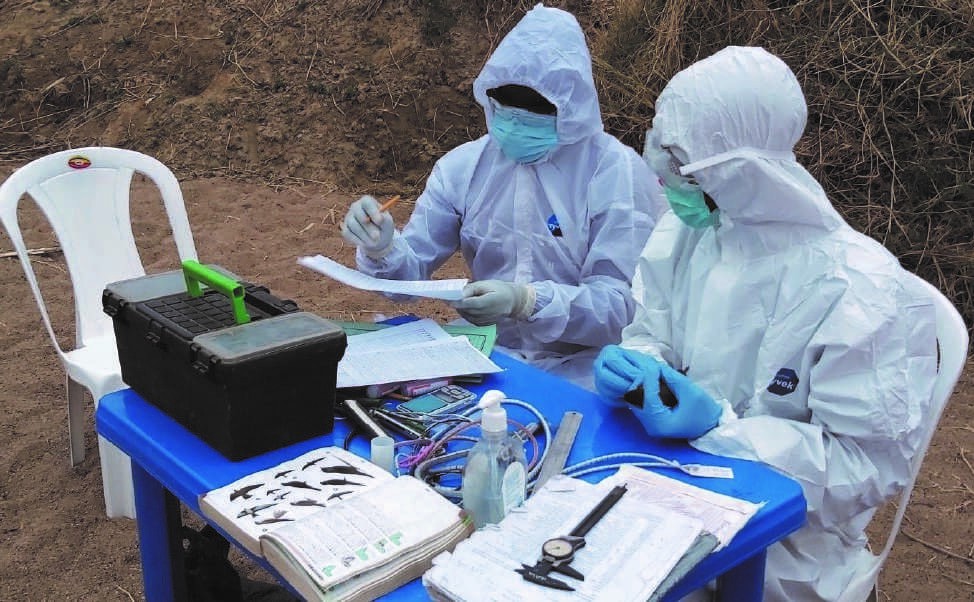
Conservation genetics/Molecular ecology/Disease ecology
"“Population genetics of Afrotropical birds”"

Macroecology and Biogeography (habitat use, fragmentation & species distribution)
"Amurum Forest Reserve: a refugia for biodiversity"
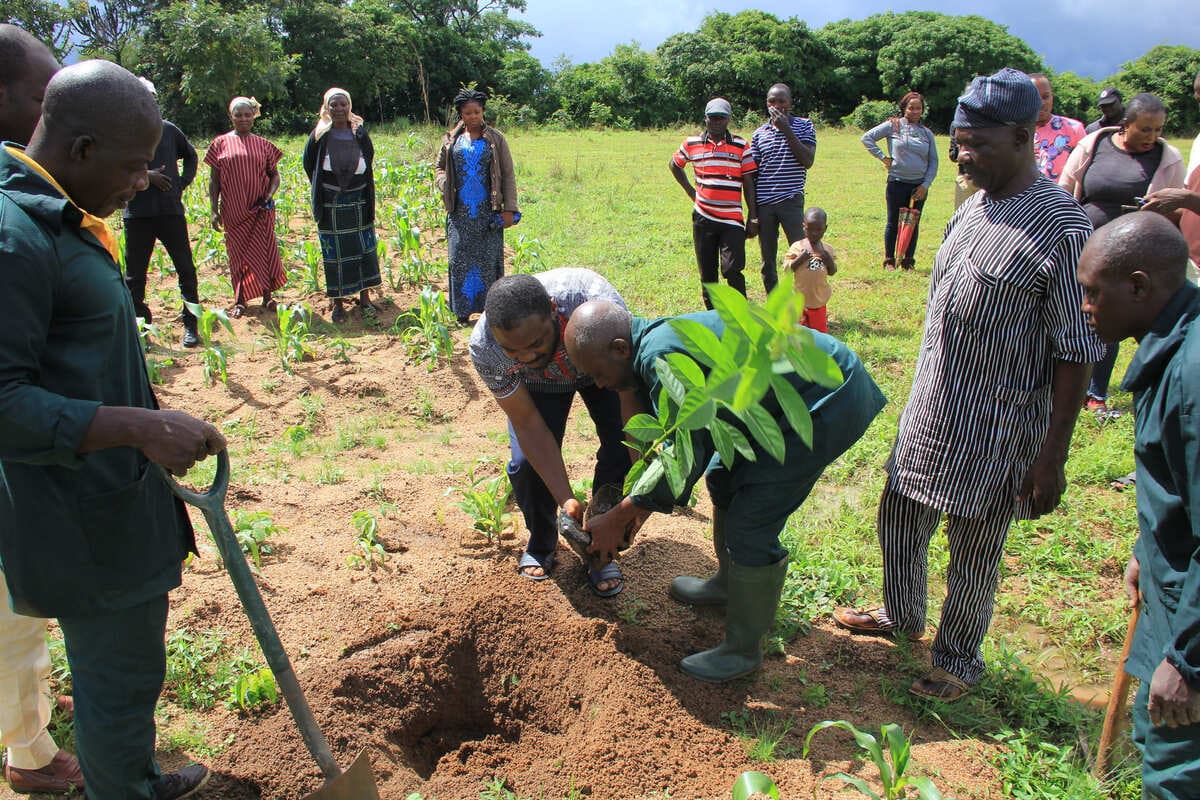
Socioecology & ethnoecology/Conservation Education
"Two decades of conservation effort in AFR: perceptions, attitude and knowledge of catchment communities"
Trends in APLORI Research Projects
A quick analysis of research trends at APLORI shows a progressive increase in the number and diversity of research topics. From a lot of research topics mainly focused on simple species inventories during the first six years (2004 – 2009), the last six years (2016 – 2021) has seen remarkable increase in the diversity and sophistication of research topics by researchers at APLORI, including in new and emerging research fields e.g. urban ecology, citizen science, ethnoconservation etc.
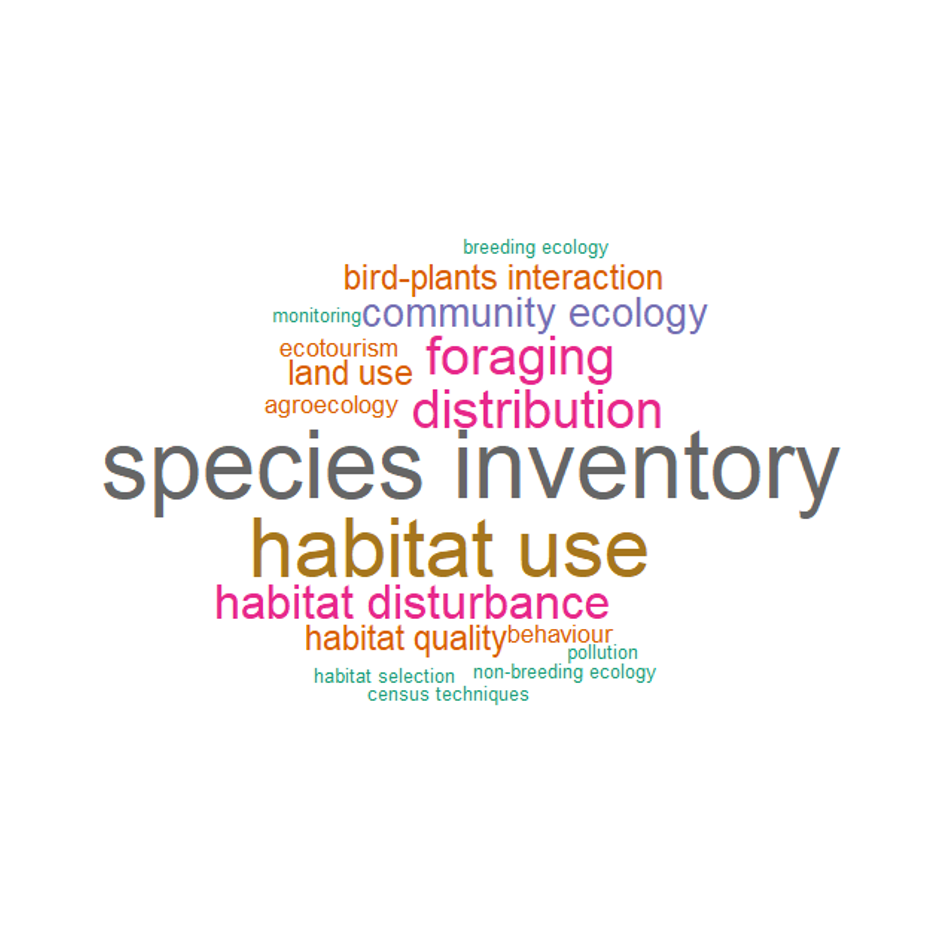
2004 to 2009
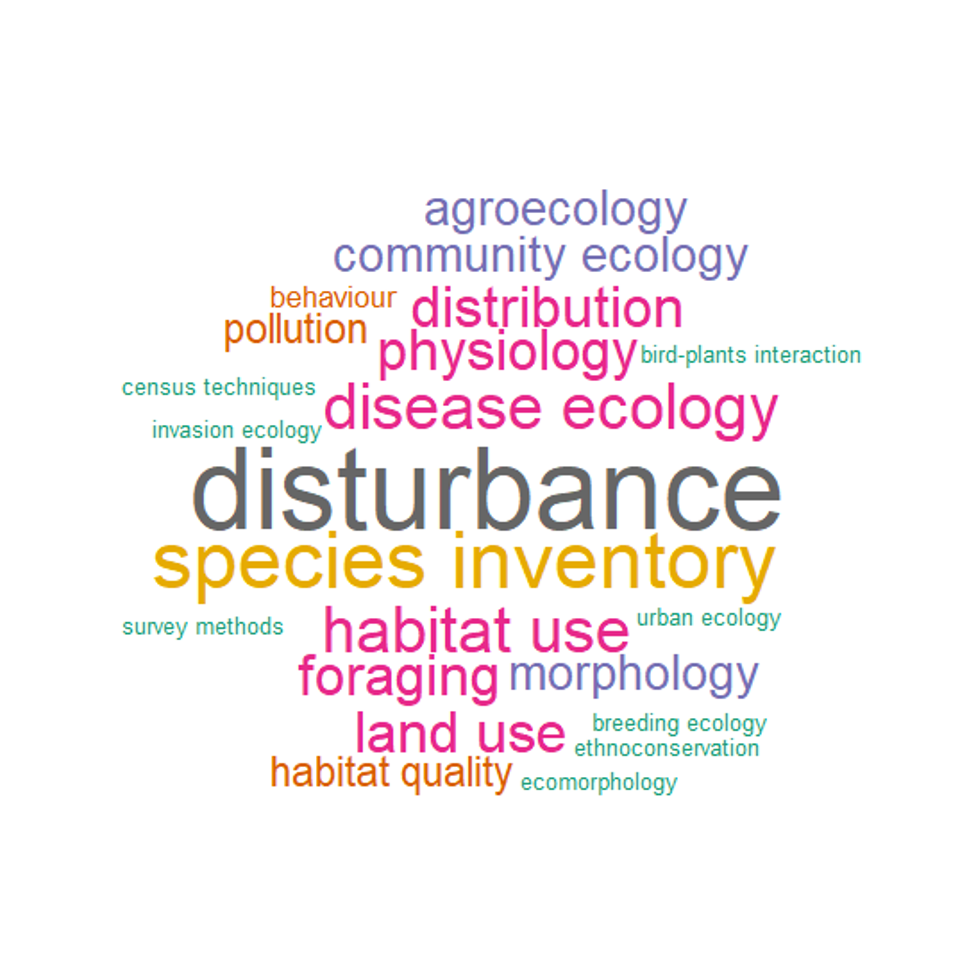
2010-2015
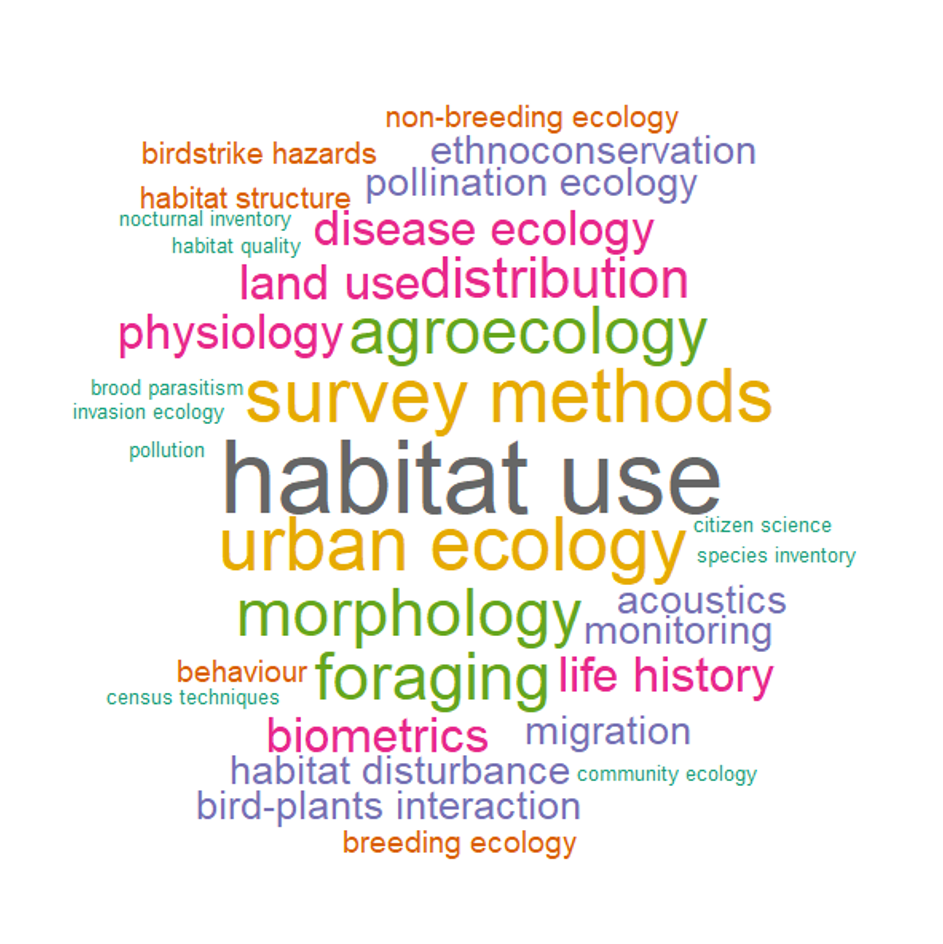
2016 to 2021
Promoting citizen science & building an environmentally conscious society
In recent times (since 2015), APLORI has also begun directing efforts towards increasing public awareness and engagement in biodiversity conservation through birdwatching. This work has mainly been implemented through the Nigerian Bird Atlas Project NiBAP – a citizen science project that recruits, trains and organizes young Nigerians into bird clubs and bird atlas teams. From just two largely expat-dominated bird clubs in Nigeria, the NiBAP has now founded and established 20 bird clubs with over 1,000 mostly indigenous members. From three active atlasers in 2015, there are now over 250 active bird atlasers in Nigeria. All these citizen scientists have helped to survey close to 4000 of the 11,080 pentads needed for a complete survey coverage of Nigeria. The NiBAP Facebook group has close to 5,000 people participating in the general discourse about birds and biodiversity conservation in Nigeria.
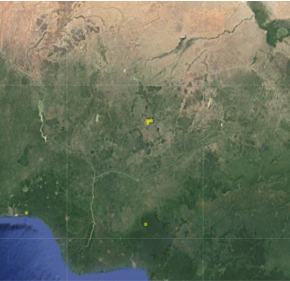
Dec 2015
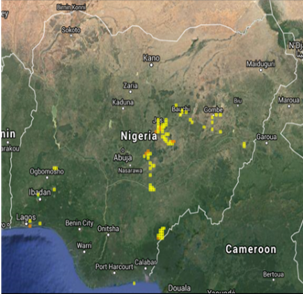
Dec 2016
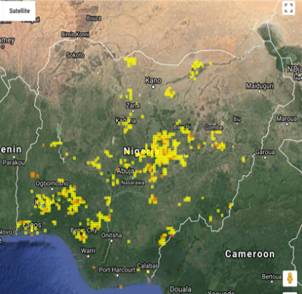
Dec 2017
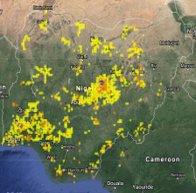
Dec 2018
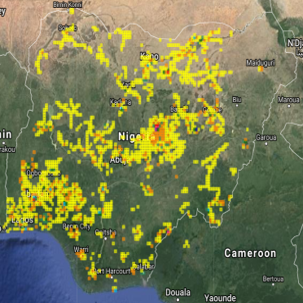
Dec 2019
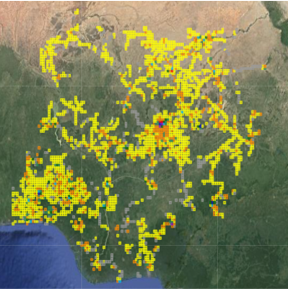
Dec 2020
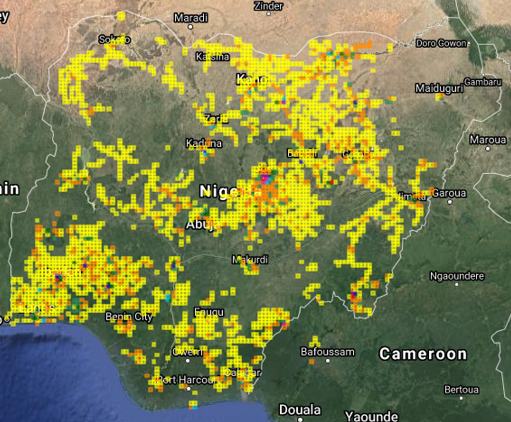
Dec 2021
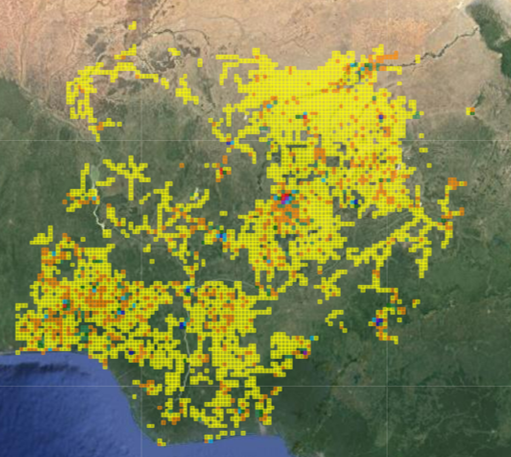
Dec 2022
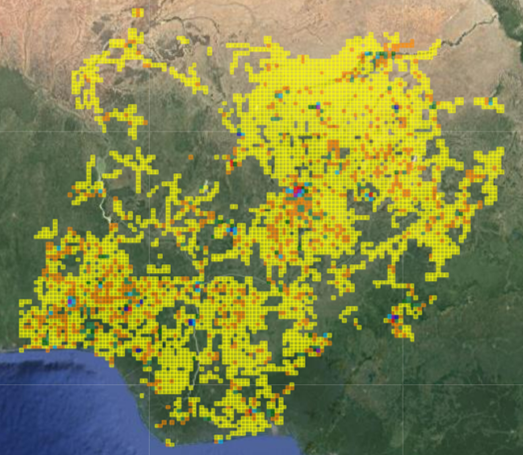
Dec 2023

Coverage as at December 2023
From a small team of 3 in 2015 to 250+ active contributors/volunteers in 2023
From two bird clubs prior to this project to ~30 bird clubs in Nigeria in 2023
From 7 in 2015 to greater than 3,600 pentads covered in 2023
Online community close to 5000 persons
Developing Capacity for citizen science in West Africa
Years Pentads Cards Species All years 5343 10623 921 2023 812 1248 705 2022 513 733 607 2021 1033 1515 729 2020 814 1323 700 2019 839 1359 714 2018 831 1296 698 2017 541 744 634 2016 331 429 572 2015 7 7 203
Partners & collaborators
All of this capacity building work has been made possible because of the vision and commitment of our benefactor, Dr. A. P. Leventis and the Tasso Leventis Conservation Foundation; and through the support of several vital partners and collaborators including the University of Jos; the Nigerian Conservation Foundation; the Laminga Community; Leventis Foundation Nigeria; BirdLife International – Cambridge and Nairobi; University of St Andrews, UK; University of Cape Coast, Ghana, just to mention a few. Our citizen science efforts have also enjoyed great support from several collaborators and partners including: The FitzPatrick Institute for African Ornithology, University of Cape Town, South Africa; the Biodiversity Development Institute (BDI), South Africa; Skandinav Konsult, Sweden; Swiss Ornithological Institute, Switzerland; BirdLife Sweden; BirdLife – The Netherlands, the British Trust for Ornithology; the Royal Society for the Protection of Birds RSPB etc


